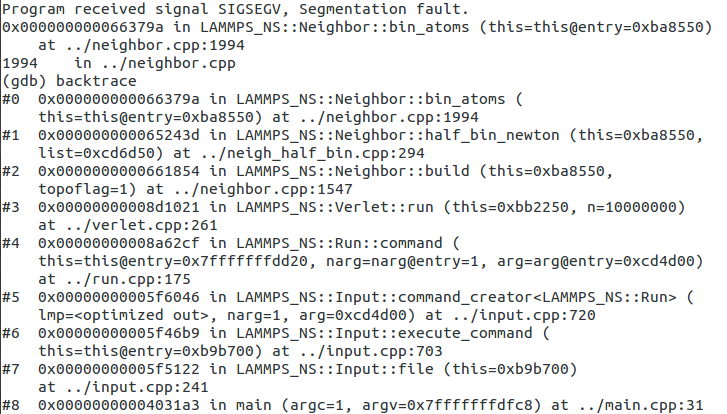Hi Axel,
Thanks for you help.
I tried to run it in gdb, and get following results:
and I go into the cpp files
here are the coresponding lines
neighbor.cpp bins[i]= binhead[ibin]
neigh_half_bin if(binstomflag) bin_atoms()
neighbor.cpp (this ->*pair_build[blist[i]])(list[blist[i]])
verlet.cpp neighbor_build()
run.cpp update->integrate -> run(nsteps)
but I am not quite understand how these line means for, do you have any idea
about what might be the problem?
difficult to say. from the line numbers it looks as if you are using a
rather old version of LAMMPS.
so the first thing to try, if something like this happens, is always
to try with the latest development version, in order to make certain,
that you don't run into a bug that has already been fixed.
however, this part of the code, is also a rather time critical one, so
that it has little to no checks on the validity of data. this means,
the cause for the problem may have been somewhere completely
different, e.g. bad potential parameters or something else causing
invalid forces. for that purpose, it may be practical to set up a test
system, that is as small as possible, i.e. it runs as fast as
possible, but results in the same kind of crash and then run with
frequent trajectory output in the hope to see from visualization, what
is wrong, and monitor energies frequently to check that and finally
run under control of some memory checking tool, like valgrind's
memcheck to detect illegal memory accesses.
if you haven't done so, please set your neighborlist generation
setting to the most conservative settings (i.e. no delay, and building
every step).
axel.
